Healthy, leisurely scraping at Hacks and Hackers Hack Day Birmingham
Health, education and leisure centre data came under scrutiny from Birmingham programmers and journalists at last Friday’s Hacks and Hackers Hack Day.
 The event, sponsored by our hosts Birmingham Science Park Aston, Digital Birmingham, the National Union of Journalists and NHS Local, is the third on the ScraperWiki UK & Ireland tour, following successful events in London and Liverpool.
The event, sponsored by our hosts Birmingham Science Park Aston, Digital Birmingham, the National Union of Journalists and NHS Local, is the third on the ScraperWiki UK & Ireland tour, following successful events in London and Liverpool.
On Friday, ScraperWiki developer Anna Powell whizzed participants round ScraperWiki in 86 slides, explaining data scraping and storing and how it could be used in media investigations. View her presentation at this link. [For more information about ScraperWiki for journalists, see this post]
Online Journalism Blog and Help Me Investigate founder, Paul Bradshaw added his thoughts on where data sits in journalism. He flagged up the new government’s plans for ‘Big Society’: while the concept needs data, it might lead to less open information and more private finance initiatives (PFIs), for example.
Fired up by the intros, participants quickly brainstormed on the flip charts and groups formed speedily. 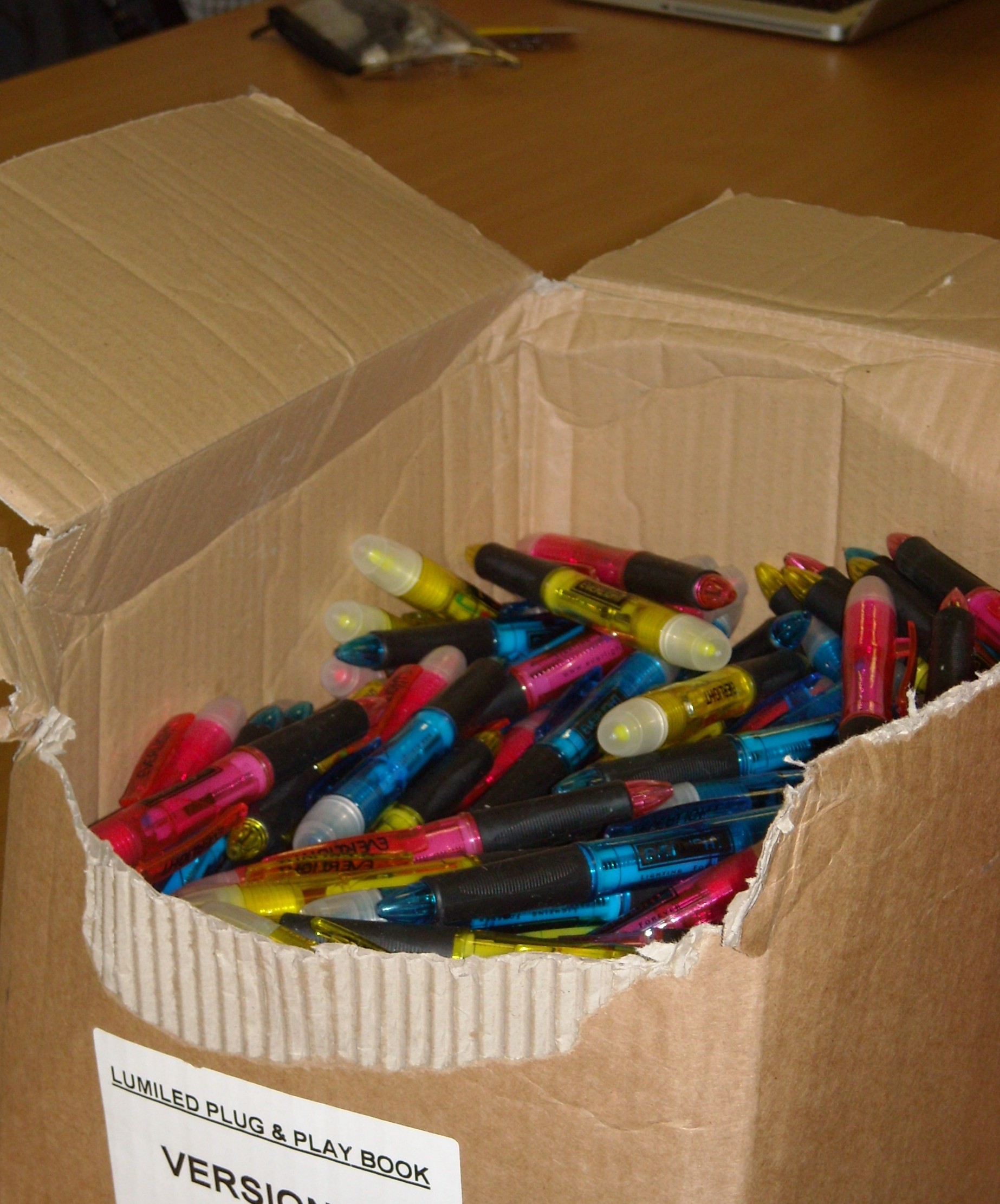 Before long it was heads down around laptops in the break out rooms. We had plenty of pens to give out..
Before long it was heads down around laptops in the break out rooms. We had plenty of pens to give out..
Aptly, given that one of our sponsors was NHS Local, three groups looked at health.
‘Smear’ Campaign: Anna Powell and Nicola Hughes (pictured, below) tackled data around cervical cancer screening. They examined statistics comparing West Midlands Hospital Performance. They looked for false negatives to identify how performances in different hospital compared.
(Image: Mike Cummins)
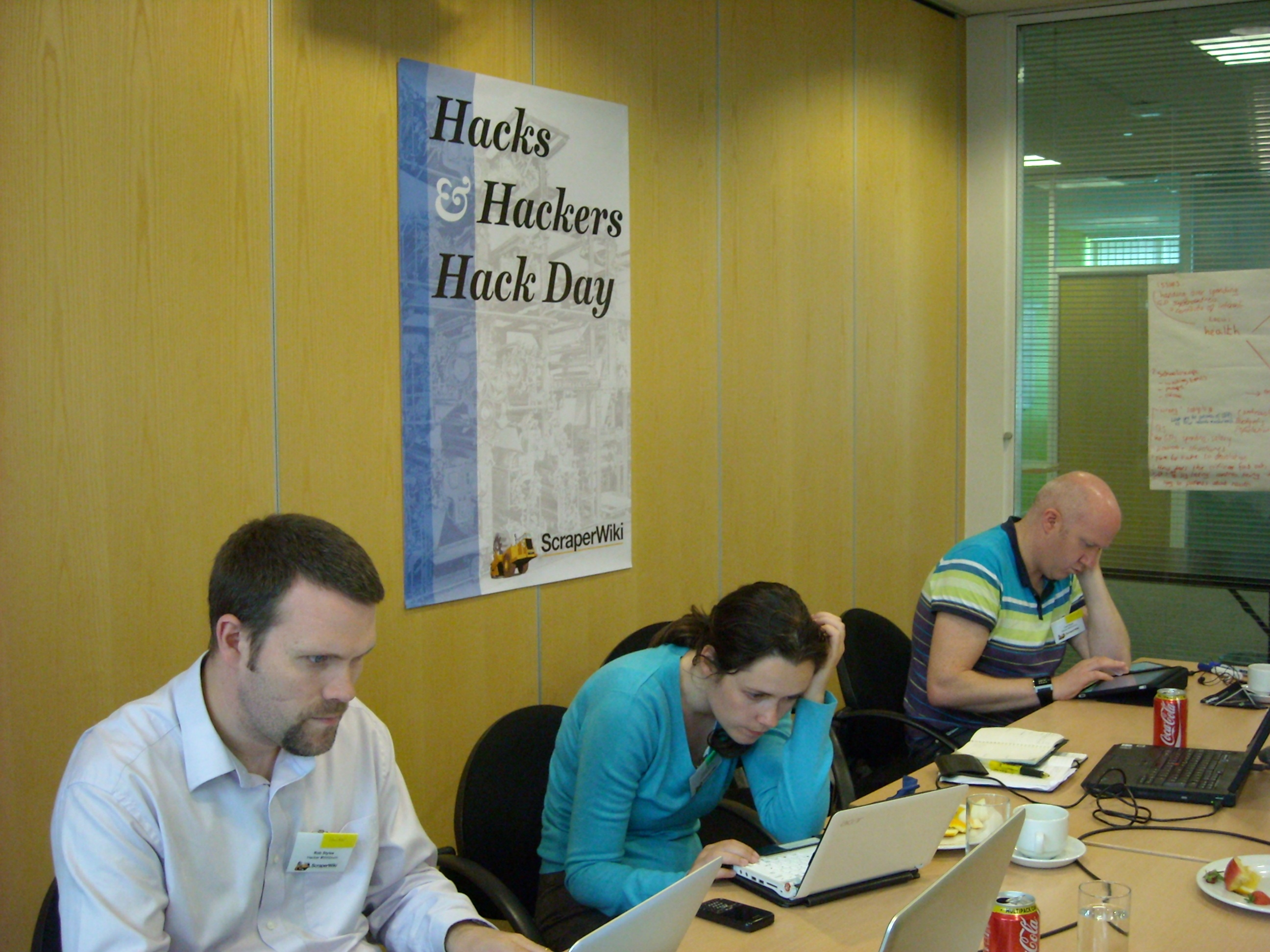 The Health Map UK: Paul Bradshaw, Mark Bentley, Martin Moore, Clare White, Carl Plant and Andrew Mackenzie decided to put GPs on the map (some of the team pictured, right)
The Health Map UK: Paul Bradshaw, Mark Bentley, Martin Moore, Clare White, Carl Plant and Andrew Mackenzie decided to put GPs on the map (some of the team pictured, right)
The result: a map of all 8,000 GP surgeries around the UK – the first of its kind, they said. They then began layering this with additional data around health indicators. They looked at which areas saw the highest number and lowest number of appointments.
Birmingham At Your Leisure: Philip John, Daniel Bentley, Edward Saxton, Andrew Brightwell and James Shuttleworth set about scraping details of leisure centres, mapping, adding population density and health information (pictured below). Andrew has blogged some more detail at this link.
Other groups looked at education and politics.
Follow the Money: Ben Griffiths (below, left) scraped data to build a database of donations to political parties, using Electoral Commission information. He then designed an online search facility. The eventual result would be a web page for each donor, showing their donation history.
Building Schools for the Future Map: The final project, by Anna Blackaby, Alex Tucker, Andy Mabbett, Stuart Harrison, Michael Grimes and Amy Mcleod, looked at Building Schools for the Future data – focusing on the West Midlands, where £41,190,089 had been wasted, they said. Using a variety of data sources, they mapped where and which schools had lost funding. A graphic showing breakdown in the West Midlands Region, showed that Conservative-controlled schools fared better than Labour’s, under the changes.
The team’s final graphic:
Schools for the Future graphic from Hacks & Hackers Birmingham
The winners
Our judges, Charlotte Crossley, director, Core Marketing; Annette King, innovation manager, Digital Birmingham; and Simon Jenner, head of incubation at E4F, decided to award one first prize; and two runner-ups.
First went to Ben Griffiths for his ‘Follow the Money’ political donations project – the judges particularly liked the way he presented his database through searchable web pages, with commenting facilities. You can find an early version of his database here: http://bit.ly/9GzbGy.
Joint second went to the Smear Campaign – another small team, of two. But a bigger group was rewarded as well: the Building Schools for the Future Map – and it was the final graphic, showing the difference between Labour and Tory controlled schools (pictured above), that clinched it for them.
Finally, the really exciting prize – the ScraperWiki builder’s mug – went to James Shuttleworth for the best coded scraper.
(Image: Mike Cummins)
Congratulations to all! The final presentations were live streamed via UStream. Video at this link…
Following up on the ideas
Paul Bradshaw tweeted a good idea, asking participants who use the social bookmarking site Delicious: “People at #hhhbrum – can you tag anything you use today at Delicious w/ #hhhbrum + #data if it’s a dataset?”
We’re trying to collect together as much material as possible from these Hack Days, so this will be something we encourage for our future events around the UK.
Participants, and anyone who has followed up on their activities, please keep in touch with your progress [via judith at scraperwiki.com] and add any relevant links in the comments.
To seek help with any scrapers built using ScraperWiki, please visit: http://scraperwiki.com/contact/
What they said…
Just got home from #hhhbrum. Thanks to all @Scraperwiki for putting on such a great event. Learnt a lot and inspired to do more with data, @djbentley, on Twitter.
Damn fab day at #hhhbrum; lots of great folks and enthusiasm for using data. All day battle linking schools by name to education.data.gov.uk, @ajtucker on Twitter.
Great day at hacks and hackers #hhhbrum. Lots of interesting discussions with lots of interesting people. Thanks to the @ScraperWiki peeps, @Digihode on Twitter.
More on Twitter here, including more (geeky) detail/links for the projects: http://tinyurl.com/2avvkf5
A few videos from the day: http://www.veoh.com/group/scraperwiki
On the Blogs
ScraperWiki is on tour! We currently have plans for more events in Glasgow, Cardiff, Manchester, Leeds, Belfast, Dublin and London. If you would like to be involved or are interested in sponsoring an event, please get in touch via judith at scraperwiki.com.

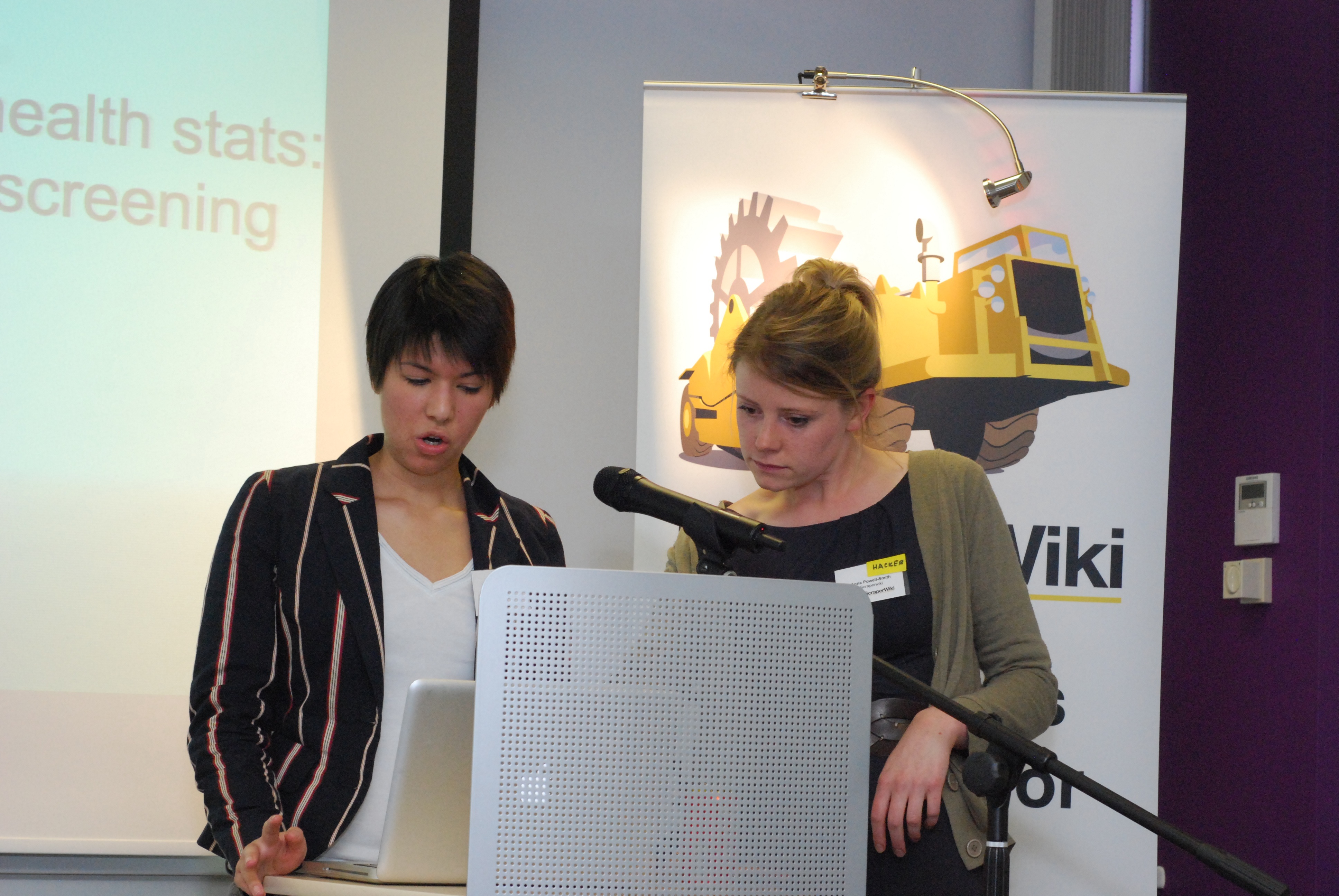


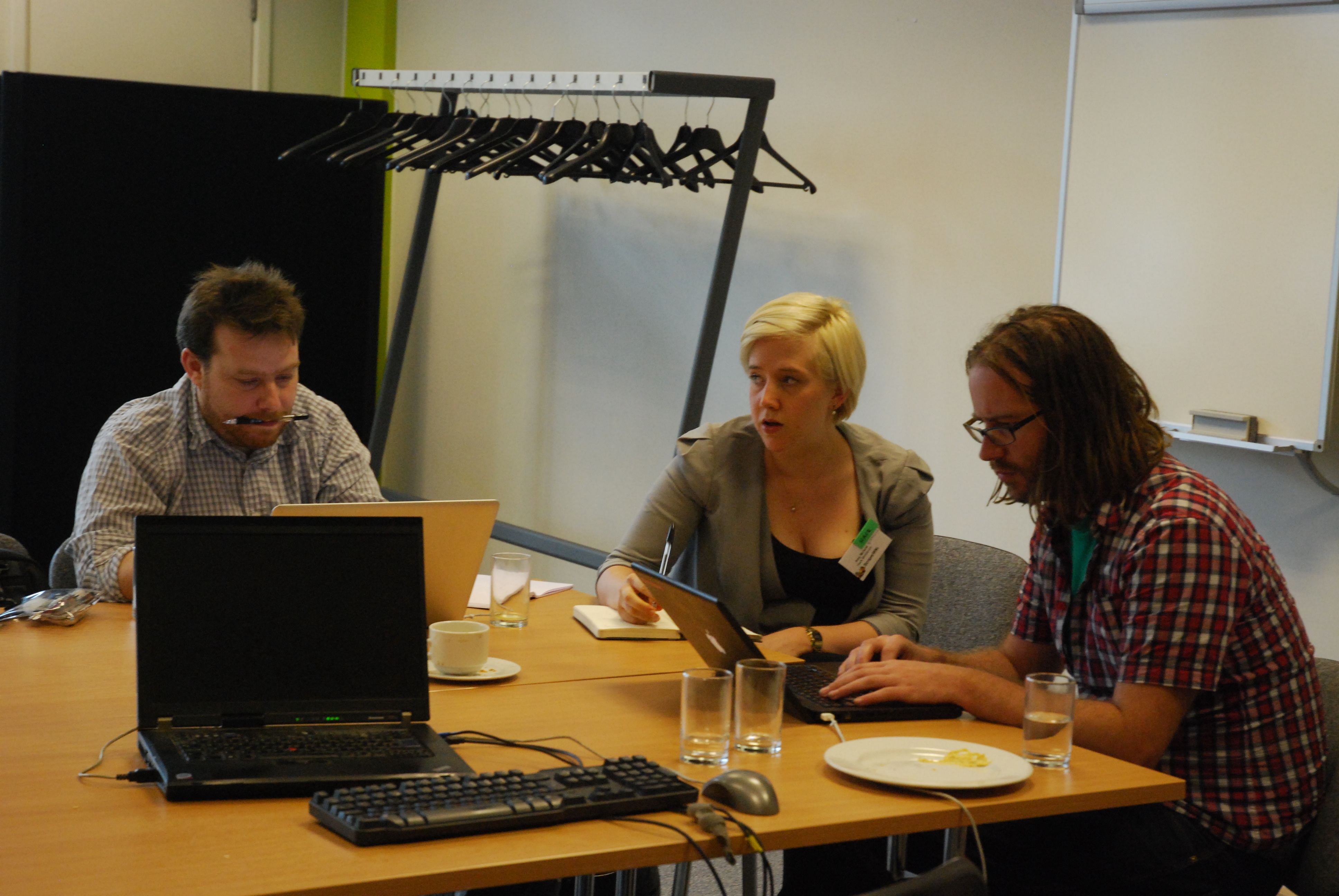
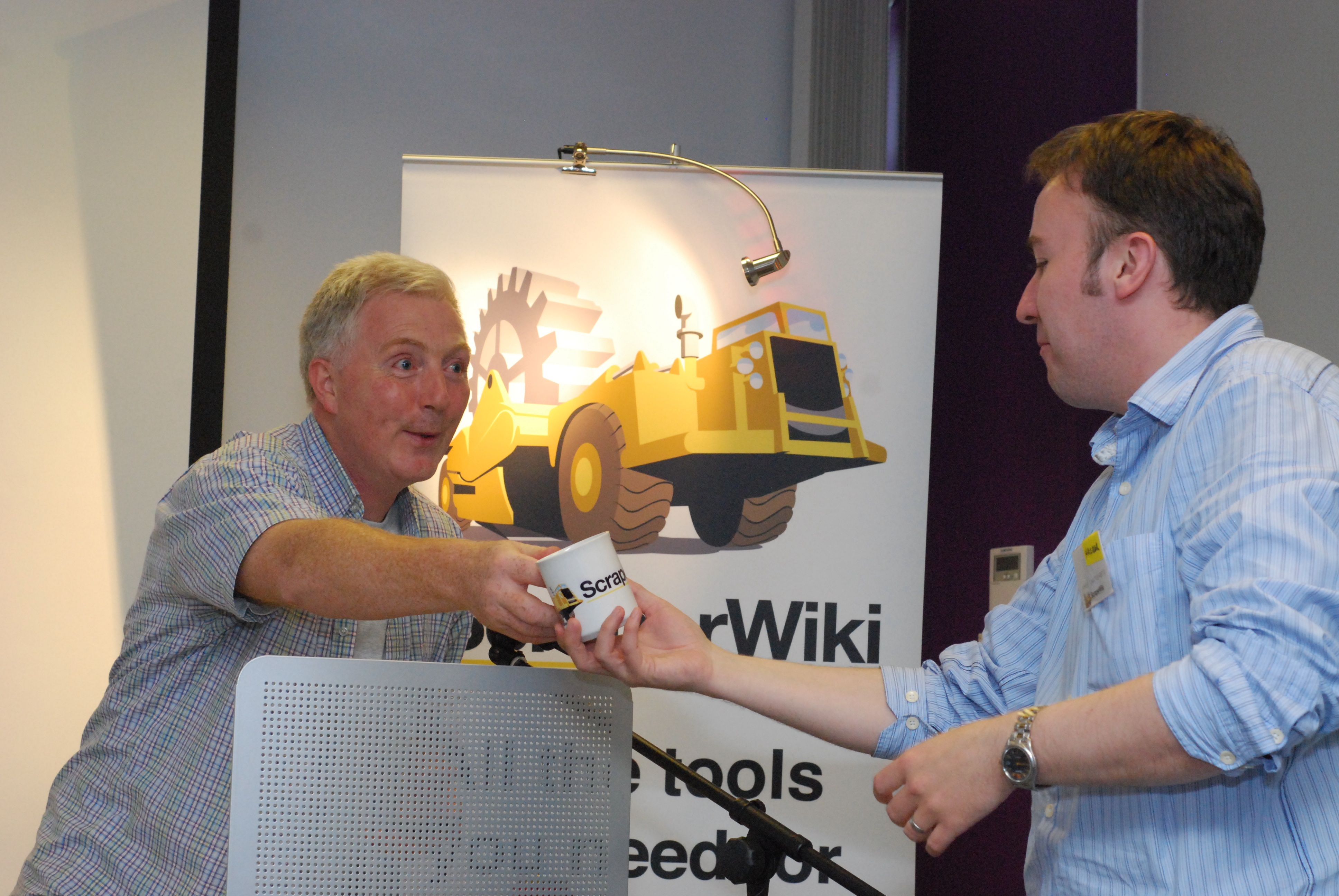
Trackbacks/Pingbacks
[…] some brief scene-setting presentations, and individual expressions of areas of interest, the attendees split into 5 topic-based groups. They […]
[…] What happens on the day? The aim is to show journalists how to use programming and design techniques to create online news stories and features; and vice versa, to show programmers how to find, develop, and polish stories and features. All sorts of data was scraped and played with at our past events: in Liverpool, projects included mashes of police, libraries and courts data. Birmingham saw lots of health-related projects, as well as scraping of political party donor and leisure centre inf…. […]
[…] and Hackers Hack Day actually entails, please have a look at our coverage from Liverpool and Birmingham. Possibly related posts: (automatically generated)Video: Liverpool Hacks and Hackers Hack DayEvent: […]
[…] What happens on the day? The aim is to show journalists how to use programming and design techniques to create online news stories and features; and vice versa, to show programmers how to find, develop, and polish stories and features. All sorts of data was scraped and played with at our past events: in Liverpool, projects included mashes of police, libraries and courts data. Birmingham saw lots of health-related projects, as well as scraping of political party donor and leisure centre inf…. […]
[…] What happens on the day? The aim is to show journalists how to use programming and design techniques to create online news stories and features; and vice versa, to show programmers how to find, develop, and polish stories and features. All sorts of data was scraped and played with at our past events: in Liverpool, projects included mashes of police, libraries and courts data. Birmingham saw lots of health-related projects, as well as scraping of political party donor and leisure centre inf…. […]
[…] What happens on the day? The aim is to show journalists how to use programming and design techniques to create online news stories and features; and vice versa, to show programmers how to find, develop, and polish stories and features. All sorts of data was scraped and played with at our past events: in Liverpool, projects included mashes of police, libraries and courts data. Birmingham saw lots of health-related projects, as well as scraping of political party donor and leisure centre inf…. […]
[…] I was recently contacted by ‘ScraperWiki’ who have an event in Manchester called ‘Hacks and Hackers Hack Day’, they say: We hope to attract ‘hacks’ and ‘hackers’ from all different types of backgrounds: people from big media organisations, as well as individual online publishers and freelancers… The aim is to show journalists how to use programming and design techniques to create online news stories and features; and vice versa, to show programmers how to find, develop, and polish stories and features. All sorts of data was scraped and played with at our past events: in Liverpool, projects included mashes of police, libraries and courts data. Birmingham saw lots of health-related projects, as well as scraping of political party donor and leisure centre inf…. […]
[…] event just one of a number of similar days around the UK. The successes in Birmingham and Liverpool amongst others, mean that tomorrow should be […]